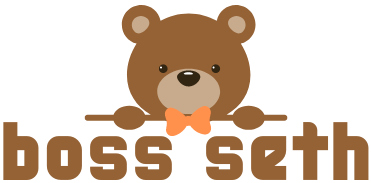Play is more than just fun; it's a crucial aspect of a child's development. For babies and toddlers, playtime serves as a foundation for cognitive, physical, and emotional growth. Choosing the right toys for this stage is essential in fostering a nurturing environment that supports their developmental journey.
The Developmental Benefits of Playtime
Play is a child's way of exploring and understanding the world around them. During the early years, babies and toddlers go through rapid developmental phases, and playtime provides opportunities to:
Cognitive Development:
Toys encourage problem-solving, critical thinking, and spatial awareness. Simple activities like stacking blocks or fitting shapes into corresponding holes help lay the foundation for future cognitive skills.
Motor Skills:
Manipulative toys such as rattles, graspable objects, and toys with different textures help develop fine motor skills, hand-eye coordination, and muscle control.
Language Acquisition:
Play engages children in conversations, word repetition, and sound imitation. Toys with sounds, music, and interactive features stimulate language development.
Age-Appropriate Toy Selection
Choosing toys that match a child's developmental stage is essential. Different age groups have specific needs and abilities:
Infants (0-6 months):
High-contrast toys, soft textures, and toys that encourage reaching and grasping are ideal. Mirrors, colorful mobiles, and toys with various textures stimulate their senses.
Examples include:
- Soft sensory balls
- High-contrast black-and-white books
- Toys with various textures
Babies (6-12 months):
As motor skills improve, toys that promote crawling, rolling, and sitting become important. Stacking rings, push-pull toys, and soft dolls allow them to explore movement.
Examples include:
- Stacking rings
- Push-pull toys
- Soft dolls
- Explore more toys for this stage
Toddlers (1-3 years):
This stage is characterized by increased curiosity and physical activity. Toys that encourage imaginative play, role-playing, and creative exploration become essential. Dolls, action figures, building blocks, and pretend play sets are great options.
Examples include:
- Building blocks
- Shape sorters
- Play kitchen sets
- Art supplies
- Discover a variety of baby and toddler toys
Nurturing Cognitive and Emotional Growth
Playtime isn't just about physical development; it's also a means of nurturing emotional and social skills:
Imagination and Creativity:
Toys that allow children to create stories, scenarios, and imaginary worlds foster creativity and innovation.
Examples include:
- Dollhouses
- Dress-up costumes
- Art supplies
- Explore more imaginative play options
Emotional Expression:
Play provides a safe space for children to express their emotions, thoughts, and fears.
Examples include:
- Stuffed animals
- Puppets
- Drawing materials
Social Interaction:
Playing with peers or caregivers promotes social skills like sharing, taking turns, and cooperating.
Examples include:
- Board games
- Building projects
- Group activities
